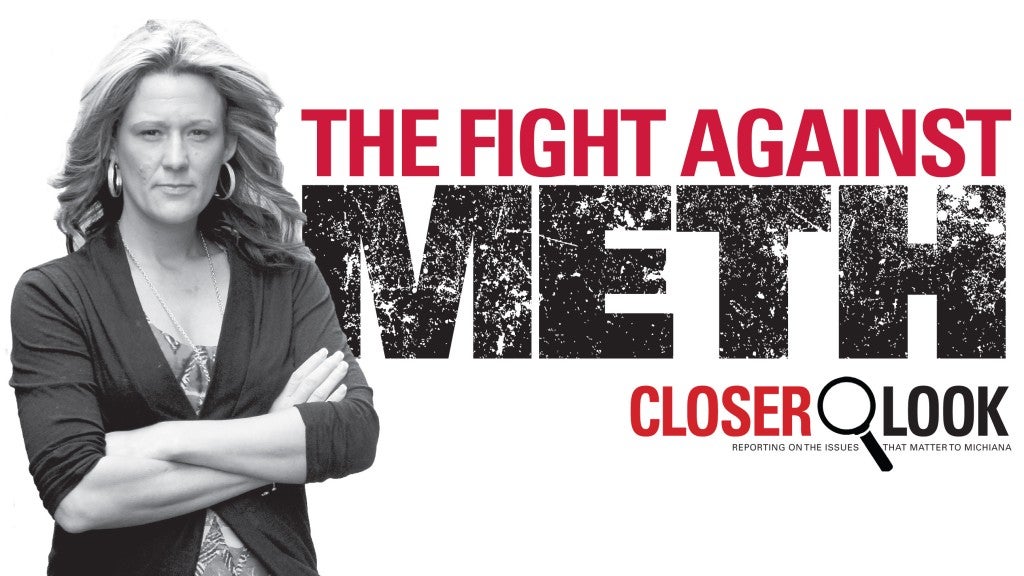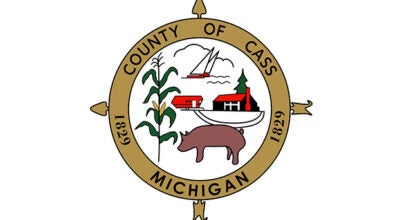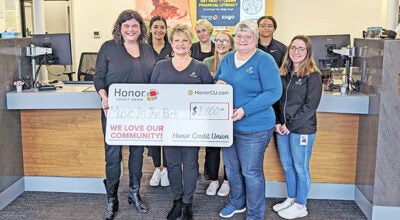Part two: Treatment saved woman’s life from meth
Published 8:05 am Friday, June 24, 2016
By AMBROSIA NELDON
ambrosia.neldon@leaderpub.com
When Misty Collett was arrested in November 2011, all she wanted was to use again. The 31-year-old was so controlled by methamphetamine that she felt she needed the drug to stay alive.
“It wasn’t even like you were getting high anymore,” Misty said. “It was like you were trying to function. It becomes a survival thing.”
Decades of drug use had damaged the receptor sites that control the pleasure center of her brain. In other words, in order to feel good, Misty — like all habitual meth users — felt the need to use meth.
People experiencing methamphetamine withdrawals can experience a wide variety of biological symptoms, including fever and chills, shaking, tremors, respiratory issues, nausea and vomiting. Psychologically, meth addicts may experience paranoia, depression, sleep disturbances and hallucinations, among others.
“The great thing is your brain will fortunately heal,” said Bob Weber, who has worked with Woodlands Behavioral Healthcare Network for more than 20 years. Today, as the substance abuse supervisor at the treatment facility, he recognizes that this hope is a key message to share with recovering addicts.
While lodged at the Cass County Jail for manufacturing methamphetamine, Misty said at some point she finally succumbed to the fact that she wasn’t going to be able to use. Reflecting on her detox period five years later, her eyes well up with tears.
“I couldn’t even recognize who I was anymore,” she said. “When I looked in the mirror, I remember looking at myself and thinking I wasn’t me. I was a shell of a person.”
Even more eye opening than the stranger looking back at her in the mirror was the internal loss Misty felt when she lost her son.
“In order to move on, I had to lose something I couldn’t live without, and that was my son,” she said. “Once they took my son and we went to Cass County Jail, it became a life or death situation for me.”
Road to recovery
Since 2011, Cass County has operated a number of problem-solving/treatment courts, including the Swift and Sure Sanction Probation Program, operated by circuit court; adult treatment court, operated by district court; family treatment court, operated by probate/family court and regional mental health court operated in both Berrien and Cass counties.
In January 2012, Misty was accepted into the Family Treatment Court, which serves parents who have had children removed from their care as a result of abuse or neglect related to alcohol or drug addiction.
Weber said the key to drug treatment is education.
“Really educating people on the power of the drug and what it does in the reward center of the brain, and then educating them on the risk factors of going back out is so important,” he said.
Misty says the sentence was one of the greatest blessings she has received in her lifetime.
“The day I was accepted into Family Treatment Court, they stood up and told me I was worth something, that I wasn’t just another drug addict, another meth addict,” Misty said. “They looked at me as the mother of Payton. A person. They told me I could do it.”
Misty underwent outpatient treatment at Woodlands Behavioral Healthcare Network in Cassopolis, which tailors programs to each individual patient. During her treatment, Misty attended group and one-on-one meetings, worked on building healthy relationships and learned how to run a family and household.
“We have had top-shelf recovery in Cass County. The support system there is unbelievable,” Misty said, explaining how her case managers and therapists went above and beyond the call of duty to serve as a support system. “It could be 2, 3 o’clock in the morning and I could call them. They were there, and they are still in my life today.”
Through treatment, therapists also helped Misty work out the trauma she had undergone watching her father abuse her mother until she eventually shot and killed him.
“I had never been able to talk about things in my life without being intoxicated,” Misty said. “They had me write a narrative of my story and it just seemed like I was so ready to get that out of me that I couldn’t do anything but write and cry. … But when I finished and handed that piece of paper — that piece of my life — over, I felt like it was OK, like I was free.
“When they reached out their hand to me, I think I grabbed on so tight and have never let go of them.”
Misty’s husband, Preston, was released from prison and underwent a faith-based treatment court, and eventually the entire family was reconnected. Today, Misty said she relies on her faith, her friends and her family to keep her from using meth.
“When we were on drugs, we were so toxic for each other,” Misty says. “We had to learn about relationships and how to be healthy. No matter what, we had a son together, and he needed both parents to be healthy.”
Misty said her husband is one of her greatest inspirations.
“It was amazing to see someone who had been in a 20-year addiction say, ‘no more,’” she said.
Misty said that while the struggles of life do not just go away once addicts become sober, she learned how to deal with her problems without resorting to drugs, and through the program, she was able to create a bond with her family that is stronger than ever.
“That addiction will always be in me, but I’ve been taught how to use my intellect over my emotion. I think things through. It’s all about using your tools,” she said. “My problems, I know I can get through them without using drugs because I have support.
“Using is not an option.”
A bright future
Now five years sober, Misty and Preston both dedicate their lives to helping others who have battled drug addiction get clean and stay clean.
Preston is a transporter and peer support for Swift and Sure and Adult Treatment Court in St. Joseph and Cass counties. Misty helps transport addicts to and from treatment in both counties.
Together, the couple helps to run an organization called Celebrate Recovery in Dowagiac. The focus of the organization is to provide support for addicts in any way that is needed.
“We are a community and we reach out and help people right where they are at, no matter what their situation is,” Misty said. “Helping them helps us.”
Misty said that while her decades of drug use was a traumatic time, she feels God helped her come out of her addiction so she can serve and inspire others. She says she constantly tells people that no matter what has happened in the past, they are here for a reason.
“Every day when I wake up, I don’t have to live in that shame anymore. I am here, and I feel a lot of gratitude for that,” she said. “If God wakes you up in the morning, there is hope.”
Read the first part of Misty’s journey here.







